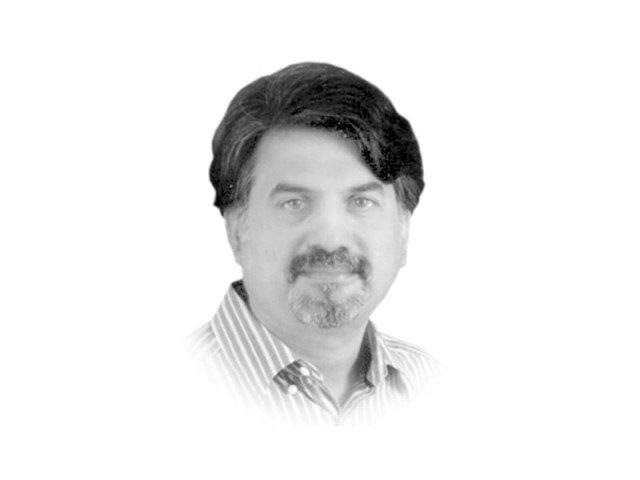Political means and the war on terror
Bloodshed, brutality and the high level of violence over an extended period is taking place in a political environment

The writer is a retired lieutenant colonel of the Pakistan Army and is currently pursuing a PhD in civil-military relations from the University of Karachi
Post this traumatic, violent incident, all finger-pointing has been towards RAW, which is said to be pursuing the aim of making Balochistan look as good or as bad as Indian-held Kashmir. If that is the policy aim of our neighbour, then there would be no end to proxy wars. In fact, new methods and strategies will be enacted to fight them.
General Raheel Sharif, who was born in Quetta, had his first military posting to the same province. While still brigadier, he acted as the chief of staff of the Quetta Corps and is a general officer who is familiar with the problems that Balochistan faces. Just a couple of months earlier while addressing the officers of the Command and Staff College, Quetta, he described Balochistan as the “hotbed of regional and global proxy wars” and in an effort to explain what the military is doing about it went on to say that “while our enemies are stoking terrorism to demoralise and destabilise our country we are united, fully determined and capable of defeating their nefarious designs”.
Perhaps what is needed to combat our enemies is a change in our methods and strategies. We can’t keep carrying out air strikes to teach militants a lesson because there will come a time when there are no more hideouts and targets left to strike at. Thus the military has transitioned from hardcore kinetic operations to intelligence-based combing operations. This transition, to an average civilian mind, only dictates that besides those across the border, the leftover enemy now resides right in our midst — not only in remote areas but in urban provincial centres of Peshawar, Lahore, Karachi and Quetta.
So far, we have only looked on as victims, with the world not ready to listen to us or even believe us. At the same time it believes the Indians, even as they increase their stranglehold on the Kashmiris. While we have little substantial evidence on who the handlers, the aid-givers and trainers of these terrorists are, the Indians not only execute state terrorism in held-Kashmir (with hardly a global eyebrow being raised), they may also be behind the continuity of violent terrorist attacks in cities like Quetta and elsewhere in Pakistan. The question here is not whether RAW is involved in planning and executing terrorist attacks in Pakistan — the real question is what are we doing to stop this? Is there a centrepiece to our strategy to deal with this situation? We need to move beyond holding meetings and visiting victims of attacks in hospitals every time there is a terror strike. We need to find a centrepiece of our strategy to combat terrorism. What can that centrepiece be?
There should be only one political objective of this war and that is to bring peace to this country. As the military continues to follow the natural course of acting against the planners, executors and perpetrators of terrorism, the political objective stands naked and at sharp variance with the military aim. It is my fear that the ongoing violence may reach that point where it suppresses the ability (if any) of politicians and policymakers to control it.
The bloodshed, brutality and the high level of violence over an extended period is taking place in a political environment. There exists a deep-rooted clash of political ideas that is enabling the continuity of violent terrorist acts. The culmination of Operation Zarb-e-Azb in Fata is a job well done by the military. Now, gradual progress away from violence will have to be achieved through political means as well as through ideas and words of a diplomat and a politician, and not just through the barrel of a gun. Most importantly, the deciding factor here will be the establishment’s intent towards the political objectives of this military campaign.
We must stop neglecting the political role in the military campaign against terrorism. The establishment must redefine its intent to see how the two can support and complement each other. In doing so, it may propose intellectually, linguistically and culturally experienced political advisers to be attached with the military command — perhaps even till brigade and tactical levels. This will only help increase the reliance on the political dimension of this conflict. With the military over-extended and spread out, such a measure will enable local military commanders to establish their own domestic and tactical political objectives under the overall political framework of the military campaign.
Published in The Express Tribune, August 20th, 2016.
Like Opinion & Editorial on Facebook, follow @ETOpEd on Twitter to receive all updates on all our daily pieces.















COMMENTS
Comments are moderated and generally will be posted if they are on-topic and not abusive.
For more information, please see our Comments FAQ